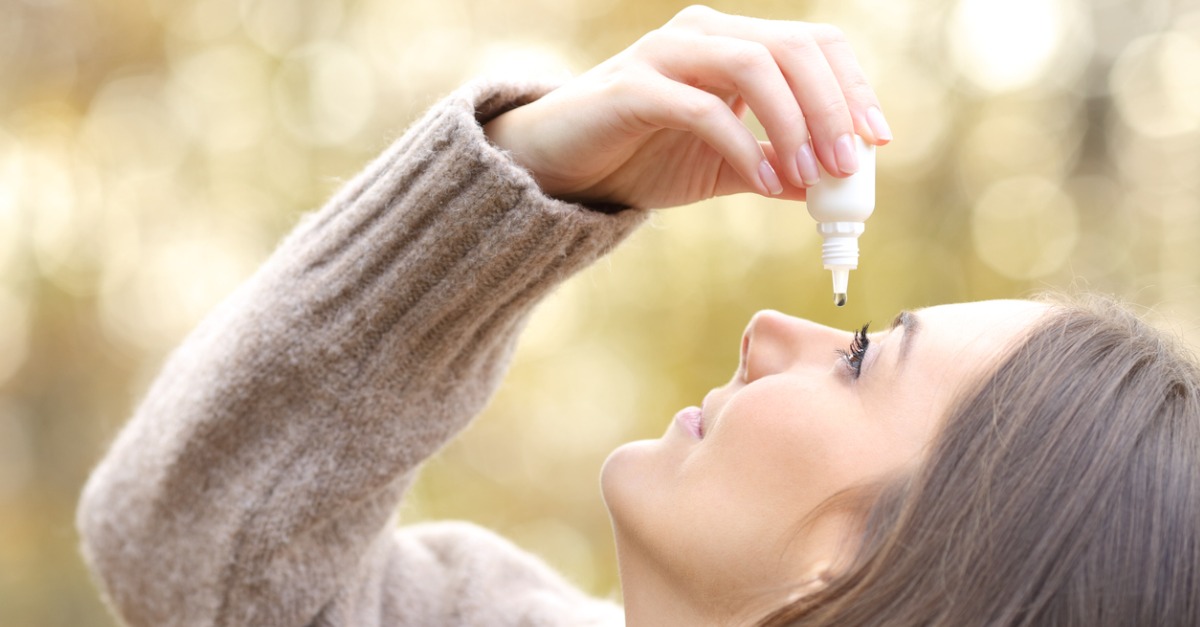If you experience fall allergies, you’ve probably come to expect sneezing, a runny nose, and other signs of congestion. But another frustrating way allergy season can affect you is by taking its toll on your eyes. Here’s a closer look into how ragweed, pollen, and other fall allergens can affect your eye health.
Fall Allergies & Your Eyes
Between 20 and 40% of Americans experience allergies of the eye, more than half of which are seasonal. The most common eye-related issue allergy sufferers experience is seasonal allergic conjunctivitis (SAC). In this condition, seasonal plant pollens trigger several eye-related symptoms. Symptoms of SAC can include:
- Redness: Allergy triggers like pollen can irritate the eyes, causing the blood vessels in the conjunctiva — or membrane that covers the eye — to dilate and appear red.
- Itching: Both seasonal and year-round eye allergies can result in itchiness. Pollen and pet dander are common culprits behind itchy eyes, but be sure to rule out any new (or outdated) cosmetic products that could be causing irritation.
- Tearing: When our eyes are exposed to an irritant such as pollen, they create a natural agent known as histamine to fight it off. This increase in histamine results in watery eyes.
- Eyelid swelling: Like watery eyes, swelling is also a result of the histamine produced when we encounter allergens.
- Burning or soreness: Some eye allergy sufferers experience an uncomfortable burning sensation or general soreness.
- Light sensitivity: You may also find that it’s difficult to look at bright lights when your eyes are irritated by allergies.
SAC can also cause puffiness or dark circles around the eyes. These symptoms are often accompanied by other problems related to seasonal allergies, including nasal congestion.
While seasonal eye allergies are common, it’s also possible that the symptoms above could be caused by another issue. For instance, sore eyes could be caused by straining if your prescription isn’t strong enough.
“Some patients experience allergic symptoms beyond a particular season,” observes ECA’s Dr. Joe Christenbury. ”Pet dander, mold, dust mites, or another specific sensitivity could be to blame.” If you’re suffering eye complaints that don’t subside after the seasons change, be sure to investigate further by making an appointment with one of our specialists.
Controlling Fall Eye Allergy Symptoms
Navigating the symptoms of SAC often means making some lifestyle changes, such as staying indoors on windy days when allergens are more likely to blow into your eyes, or on days when the pollen count peaks.
Some people find that over-the-counter treatments like artificial tears and oral antihistamines can also help to control symptoms. Eye drops with antihistamines in them can also help to control allergic responses to pollen and other fall allergens. For severe symptoms, prescription eye drops or allergy shots may be worth considering.
If you’re seeking a more effective solution for allergic eye discomfort, or anything else, call Eye Consultants of Atlanta at (404) 351-2220. Our award-winning team offers comprehensive eye exams as well as treatments for a wide range of eye conditions. Appointments can be scheduled online, as well.

